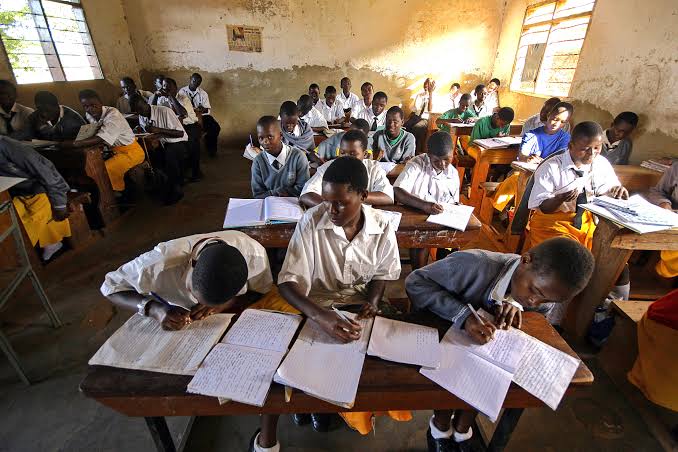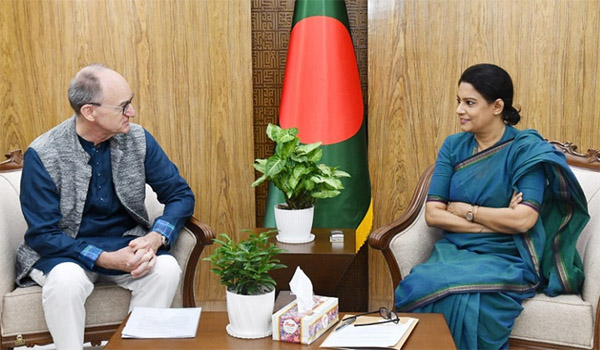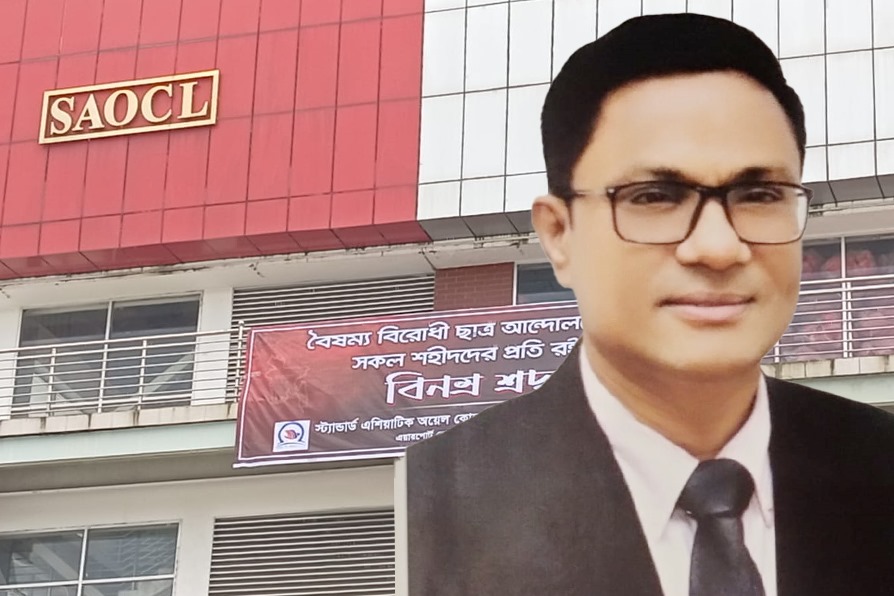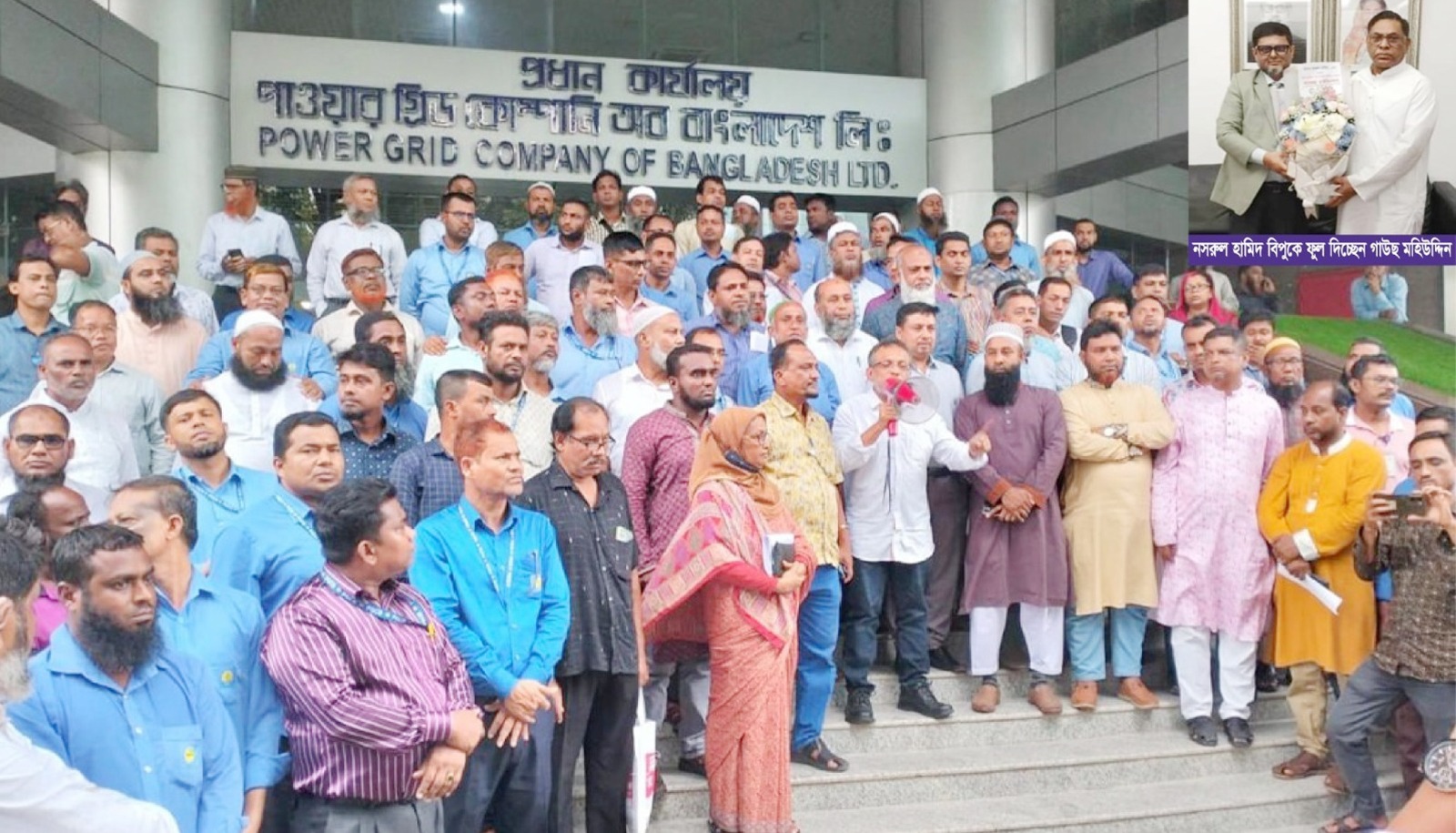
North Korea’s missile tests have become a significant global issue, drawing widespread attention and concern from the international community. Over the past few years, Pyongyang has continued to develop and test its missile capabilities, defying international sanctions and diplomatic efforts aimed at denuclearization. These tests not only pose a direct threat to regional security in East Asia but also challenge global non-proliferation efforts and undermine international stability.
This report delves into North Korea’s recent missile tests, examining the motivations behind them, the technological advancements made, and the international reactions that have followed. It will also explore the broader security implications, including the risks to neighboring countries, the potential for escalating tensions, and the challenges for global diplomacy.
North Korea’s Missile Program:
North Korea’s missile program has been a cornerstone of its military strategy for decades. The development of ballistic missiles capable of carrying nuclear warheads has been a priority for the regime, which views such weapons as essential for its survival and deterrence against perceived threats, particularly from the United States and South Korea.
Historical Background:
North Korea’s missile program dates back to the 1960s when it first began receiving Soviet technology. Over the years, the country has developed a range of missiles, from short-range ballistic missiles (SRBMs) to intercontinental ballistic missiles (ICBMs). Notably, the regime conducted its first nuclear test in 2006, which was followed by a series of missile launches that demonstrated its growing capabilities.
In recent years, North Korea has made significant advancements in both its missile technology and nuclear capabilities. The regime has tested missiles with longer ranges, greater accuracy, and more sophisticated guidance systems. Some of these missiles are believed to be capable of reaching the U.S. mainland, raising concerns about global security.
Recent Missile Tests:
In the last few years, North Korea has conducted a series of missile tests, signaling a continued commitment to advancing its military capabilities. Some of the most notable recent tests include:
1. Hypersonic Missile Tests: North Korea claimed to have successfully tested hypersonic missiles, which can travel at speeds exceeding five times the speed of sound. These missiles are more difficult to intercept than traditional ballistic missiles due to their speed and maneuverability, making them a significant threat to missile defense systems.
2. Intercontinental Ballistic Missile (ICBM) Launches: North Korea’s ICBM tests have demonstrated the regime’s ability to potentially strike targets far beyond the Korean Peninsula, including parts of the United States. These tests are particularly concerning because of the potential for these missiles to carry nuclear warheads.
3. Submarine-Launched Ballistic Missiles (SLBMs): North Korea has also been working on SLBMs, which would give the regime the ability to launch missiles from underwater, increasing the difficulty of detection and interception. The development of SLBMs would provide North Korea with a second-strike capability, further complicating security calculations in the region.
4. Short-Range Ballistic Missiles (SRBMs): While much of the focus has been on North Korea’s long-range missile capabilities, the regime has also continued to test SRBMs. These missiles are designed to target South Korea and U.S. military bases in the region, posing a direct threat to the security of the Korean Peninsula.
Motivations Behind North Korea’s Missile Tests:
Understanding the motivations behind North Korea’s missile tests is key to analyzing the broader implications of these actions. Several factors contribute to Pyongyang’s continued development and testing of missile technologies:
1. Regime Survival and Deterrence: North Korea views its missile and nuclear programs as essential for the survival of the regime. By developing a credible deterrent, Pyongyang seeks to prevent external intervention, particularly from the United States and its allies. The regime believes that possessing nuclear weapons and advanced missiles will dissuade potential adversaries from pursuing regime change.
2. Leverage in Diplomacy: Missile tests also serve as a tool for North Korea to gain leverage in international negotiations. By demonstrating its growing capabilities, the regime seeks to extract concessions from other countries, such as the easing of sanctions or economic aid. Missile tests often precede or follow diplomatic engagements, indicating that they are part of Pyongyang’s broader strategy to strengthen its negotiating position.
3. Domestic Propaganda: North Korea’s leadership uses missile tests to bolster its domestic legitimacy. Successful tests are often portrayed as victories for the regime and evidence of its strength and technological prowess. This helps maintain internal support for the leadership, especially in times of economic hardship or international isolation.
4. Technological Development: North Korea’s missile tests are also driven by the need to advance its technological capabilities. Testing is a critical part of missile development, allowing the regime to refine its designs, improve accuracy, and ensure the reliability of its systems. Each test provides valuable data that can be used to enhance future missile performance.
International Reactions to North Korea’s Missile Tests:
North Korea’s missile tests have elicited strong reactions from the international community. Countries in the region, particularly South Korea and Japan, as well as the United States and other global powers, have expressed concern over the destabilizing effects of these tests.
South Korea’s Response:
As North Korea’s closest neighbor and most immediate target, South Korea has been particularly alarmed by Pyongyang’s missile tests. The South Korean government has repeatedly condemned these actions, calling them a violation of United Nations Security Council (UNSC) resolutions and a threat to regional peace.
In response to North Korea’s missile tests, South Korea has strengthened its own military capabilities, including enhancing its missile defense systems. The country has also increased cooperation with the United States to maintain a strong deterrent posture. Additionally, South Korea has continued to push for diplomatic solutions, advocating for dialogue and engagement with Pyongyang to reduce tensions on the Korean Peninsula.
Japan’s Response:
Japan, which is also within range of North Korea’s missiles, has been a vocal critic of Pyongyang’s missile tests. The Japanese government has repeatedly expressed its concerns about the threat posed by North Korea’s missile and nuclear programs, calling for stronger international sanctions and urging the regime to comply with UNSC resolutions.
Japan has also worked closely with the United States and South Korea to enhance missile defense cooperation. The country has invested in advanced missile defense systems, such as the Aegis Ashore and Patriot systems, to protect against potential missile attacks. Japan’s participation in trilateral security dialogues with the U.S. and South Korea underscores the importance of regional cooperation in addressing the North Korean threat.
United States’ Response:
The United States has long been one of the most vocal opponents of North Korea’s missile and nuclear programs. Successive U.S. administrations have pursued a combination of sanctions, diplomatic pressure, and military deterrence to curb Pyongyang’s missile ambitions.
In response to recent missile tests, the U.S. has called for the full implementation of UNSC sanctions and has reaffirmed its commitment to the defense of South Korea and Japan. The U.S. military has conducted joint exercises with its allies in the region to demonstrate its readiness to respond to North Korean aggression. Additionally, Washington has engaged in diplomatic efforts to encourage dialogue with North Korea, though these efforts have faced significant challenges due to Pyongyang’s unwillingness to make concessions on its missile program.
China’s and Russia’s Reactions:
China and Russia, both of which share borders with North Korea, have taken a more cautious approach to the missile tests. While both countries have supported UNSC resolutions condemning North Korea’s missile launches, they have also advocated for a more measured response, calling for dialogue and a reduction in military tensions.
China, in particular, has been wary of destabilizing the region, as a collapse of the North Korean regime could lead to a refugee crisis and potentially bring U.S. troops closer to its borders. Beijing has consistently called for the resumption of diplomatic talks and has opposed any actions that could lead to an escalation of tensions.
Russia, similarly, has called for diplomatic engagement and has expressed concerns about the deployment of U.S. missile defense systems in the region. Moscow views these systems as a potential threat to its own security and has called for a balanced approach that addresses the concerns of all parties involved.
Security Concerns and Broader Implications:
North Korea’s missile tests raise a number of serious security concerns, both regionally and globally. These concerns include the potential for accidental escalation, the proliferation of missile technology, and the undermining of global non-proliferation efforts.
Risk of Accidental Escalation:
One of the most immediate concerns is the risk of accidental escalation. With tensions already high on the Korean Peninsula, there is a real possibility that a miscalculation or misunderstanding could lead to a military conflict. For example, if North Korea were to launch a missile that inadvertently crosses into South Korean or Japanese airspace, it could provoke a military response, potentially sparking a broader conflict.
Missile Proliferation:
North Korea’s missile program also poses a risk to global security due to the potential proliferation of missile technology. There are concerns that Pyongyang could sell its missile technology to other states or non-state actors, further destabilizing regions beyond East Asia. North Korea has a history of engaging in illicit arms trading, and the possibility that it could share its missile expertise with countries like Iran or groups such as Hezbollah is a significant worry for the international community.
Undermining Global Non-Proliferation Efforts:
North Korea’s continued missile tests undermine global non-proliferation efforts. Despite multiple UNSC resolutions prohibiting North Korea from conducting missile tests, Pyongyang has continued to defy international law. This sets a dangerous precedent for other countries, potentially encouraging them to pursue similar paths and erode the global norms against the development and proliferation of missile and nuclear technologies. If North Korea is seen as being able to develop and test missiles with limited consequences, other states may be tempted to follow suit, further weakening global non-proliferation treaties such as the Non-Proliferation Treaty (NPT).
Moreover, the inability of the international community to effectively curb North Korea’s missile program raises questions about the efficacy of global institutions and multilateral agreements designed to prevent the spread of weapons of mass destruction. This erosion of trust in international mechanisms could lead to a more fragmented and unstable global security environment.
Diplomatic Challenges and Opportunities:
Addressing the issue of North Korea’s missile tests presents significant diplomatic challenges. Despite multiple rounds of negotiations over the years, including high-profile summits between U.S. presidents and North Korean leaders, Pyongyang has continued to advance its missile and nuclear programs. Several key factors contribute to the difficulty of finding a diplomatic resolution:
North Korea’s Reluctance to Denuclearize:
One of the major challenges in diplomacy with North Korea is the regime’s reluctance to denuclearize. North Korea views its missile and nuclear programs as essential to its survival, and it has consistently resisted international calls for complete, verifiable, and irreversible denuclearization (CVID). The regime has used diplomatic engagements to gain concessions, such as the easing of sanctions, without making significant compromises on its missile program.
Pyongyang’s strategy often involves alternating between provocations, such as missile tests, and diplomatic overtures, creating a cycle of crisis and negotiation. This approach has allowed the regime to buy time to further develop its military capabilities while maintaining a degree of diplomatic engagement with the international community.
Sanctions and Their Limitations:
Economic sanctions have been a key tool used by the international community to pressure North Korea into halting its missile tests. However, while sanctions have had a significant impact on the North Korean economy, they have not been effective in stopping Pyongyang’s missile program. The regime has shown a remarkable ability to circumvent sanctions, using illicit networks to procure the necessary materials and technology for its weapons programs.
Additionally, there are limits to how far sanctions can go without causing humanitarian crises. North Korea’s population already suffers from food shortages and economic hardship, and further sanctions could exacerbate these issues. The international community faces the challenge of balancing the need to pressure the regime without causing undue harm to the North Korean people.
China’s Role as a Mediator:
China plays a crucial role in any diplomatic efforts related to North Korea. As North Korea’s largest trading partner and a key geopolitical player in the region, China has significant influence over Pyongyang. However, Beijing’s priorities are often different from those of the U.S. and its allies. While China does not want to see a nuclear-armed North Korea, it is also concerned about the potential for instability on its border and the possibility of a unified Korea aligned with the U.S.
China has consistently advocated for a “dual suspension” approach, where North Korea would halt its missile tests in exchange for the U.S. and South Korea suspending joint military exercises. While this proposal has been rejected by Washington, it highlights China’s interest in finding a peaceful resolution that does not involve regime change in Pyongyang.
The Role of Multilateral Diplomacy:
Multilateral diplomacy, including forums such as the United Nations and the Six-Party Talks, remains a potential avenue for addressing North Korea’s missile program. The involvement of multiple stakeholders, including the U.S., China, Russia, Japan, and South Korea, provides a platform for a coordinated international response.
However, these forums have had limited success in the past. The Six-Party Talks, for example, stalled in 2009, and there has been little progress in reviving them. The challenge of aligning the interests of all parties involved—particularly the U.S. and China—remains a significant obstacle to effective multilateral diplomacy.
The Future of North Korea’s Missile Program:
Looking ahead, North Korea is likely to continue testing and developing its missile capabilities unless there is a fundamental shift in its strategic calculus. The regime’s focus on military strength as a means of survival suggests that it will prioritize missile development over economic development or diplomatic engagement.
Advancements in Missile Technology:
North Korea’s missile program has shown significant technological advancements in recent years, and this trend is expected to continue. The development of hypersonic missiles, more reliable ICBMs, and submarine-launched ballistic missiles (SLBMs) will further enhance Pyongyang’s military capabilities. These advancements not only increase the threat to regional and global security but also complicate the efforts of missile defense systems to intercept potential strikes.
Furthermore, North Korea may continue to experiment with solid-fuel missile technology, which allows for faster deployment and greater mobility compared to liquid-fuel missiles. This would make it more difficult for adversaries to detect and respond to missile launches.
Nuclear Warhead Miniaturization:
In addition to improving its missile delivery systems, North Korea is likely to continue working on miniaturizing nuclear warheads to fit on its ballistic missiles. The ability to mount a nuclear warhead on an ICBM would significantly enhance North Korea’s deterrent capability and increase the risks of a nuclear confrontation.
Cyber Warfare and Asymmetric Threats:
While much of the focus is on North Korea’s missile tests, it is important to recognize that the regime also has a growing capacity for cyber warfare. North Korea has been implicated in a number of high-profile cyberattacks, including the 2014 Sony Pictures hack and the 2017 WannaCry ransomware attack. These cyber capabilities, combined with its missile program, represent an asymmetric threat that allows North Korea to project power beyond its conventional military capabilities.
North Korea’s recent missile tests have heightened global security concerns and posed significant challenges for the international community. Despite repeated sanctions and diplomatic efforts, Pyongyang has continued to advance its missile and nuclear programs, demonstrating its determination to maintain and enhance its military capabilities.
The international response to North Korea’s missile tests has been varied, with countries such as South Korea, Japan, and the United States expressing strong opposition, while China and Russia have called for a more cautious approach. The security implications of North Korea’s missile tests are far-reaching, with concerns about regional stability, the risk of accidental escalation, and the potential proliferation of missile technology.
Addressing the threat posed by North Korea’s missile program will require a combination of diplomatic engagement, economic pressure, and enhanced military deterrence. The international community must continue to pursue a coordinated approach that seeks to prevent further missile tests while opening the door to dialogue and negotiation.
However, the path forward is fraught with challenges. North Korea’s reluctance to denuclearize, the limitations of sanctions, and the complexities of regional diplomacy make it difficult to find a lasting solution. As North Korea continues to develop its missile capabilities, the world must remain vigilant and committed to finding peaceful and effective ways to address this growing threat.
Ultimately, resolving the issue of North Korea’s missile program will require sustained international cooperation, creative diplomacy, and a willingness to engage with one of the world’s most isolated and unpredictable regimes. The stakes are high, and the consequences of failure could be catastrophic, not only for the Korean Peninsula but for global security as a whole.

 Md. Anas Ebna Arfin (Nibir)
Md. Anas Ebna Arfin (Nibir) 
























